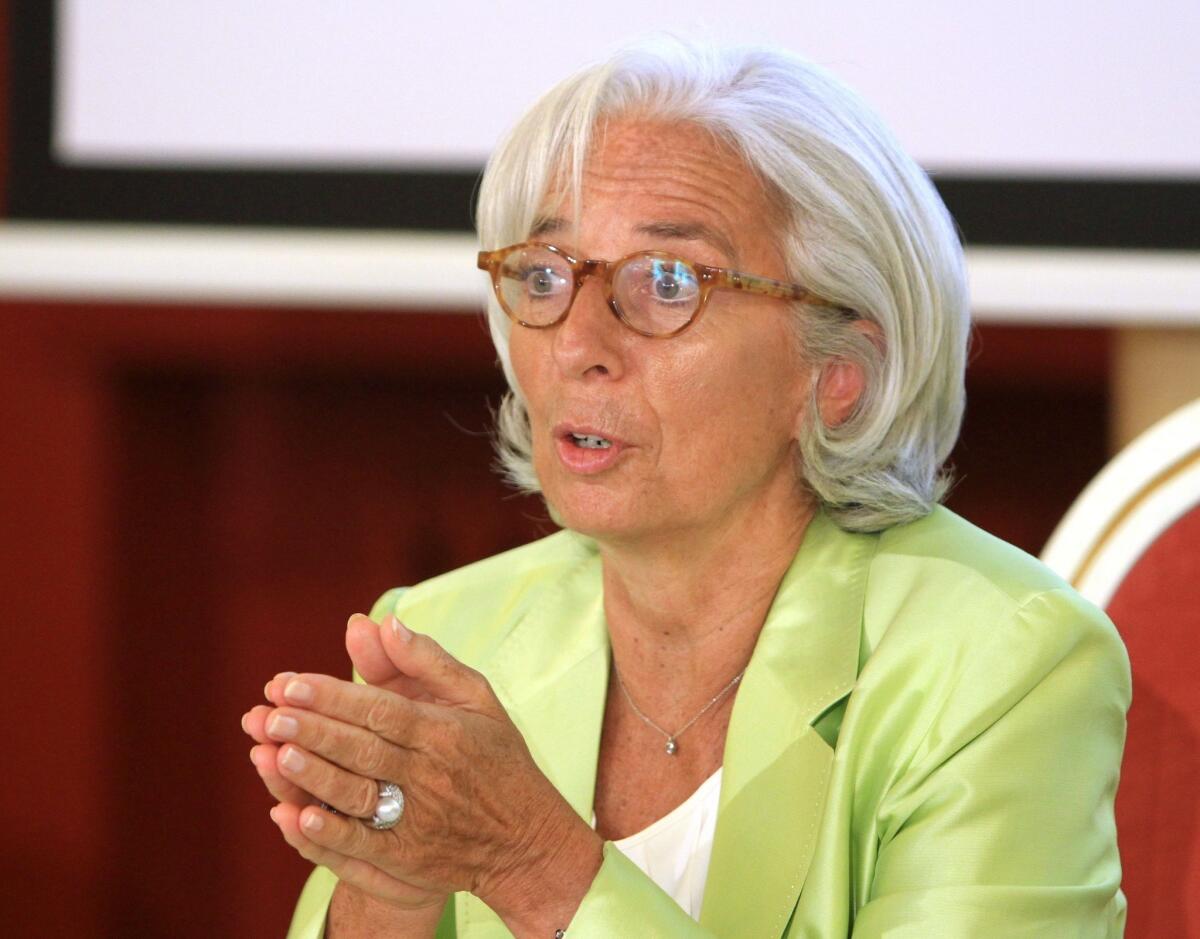IMF may ask Supreme Court to support Argentina in debt fight

In a first, the International Monetary Fund has said it will consider filing a brief to the U.S. Supreme Court supporting Argentina’s position in a long-running debt fight with hedge funds.
The IMF has never before made such a filing before the highest U.S. legal body, and its position is particularly remarkable given the rocky relationship it has had with the South American republic in recent years.
But on Tuesday, the IMF sent a letter to plaintiffs in a lawsuit against Argentina, noting that its managing director, Christine Lagarde, would ask the fund’s executive board to submit the brief before a July 26 deadline.
Argentina has for years been locked in lawsuits with creditors over portions of debt it defaulted on in late 2001. Although the nation was able to renegotiate more than 90% of the nearly $100 billion it originally defaulted on, some holdout bondholders – including hedge funds Elliott Management and Aurelius Capital Management – have refused a deal and instead are demanding face value plus interest.
An IMF filing, if it is made, would urge the court to accept a petition by Argentina, made late last month, to review and potentially overturn an unfavorable circuit court ruling from October. That decision held that Argentina had violated terms of its debt contracts with its remaining creditors and must pay them or risk defaulting on all its renegotiated debt.
The IMF, along with other institutions, has raised concerns about that ruling. They worry it would set a precedent making it difficult, if not impossible, for developing nations to restructure debt.
In April, the fund published a report stating that the decision would “risk undermining the sovereign debt restructuring process.” That view echoed a position taken by the U.S. Department of Justice in a filing before the U.S. 2nd Circuit Court of Appeals.
The Supreme Court, on summer hiatus, will decide if it will hear Argentina’s case in the fall. In the meantime, the 2nd Circuit is considering whether to uphold a separate ruling by District Judge Thomas Griesa on whether Argentina must pay the holdouts more than $1.33 billion. That ruling is expected before any Supreme Court action, but if the October ruling is ultimately overturned, it would make the issue moot.
Elliott did not immediately reply to a request for comment. The American Task Force Agentina, an advocacy group supported by the hedge fund, denounced Lagarde’s decision.
An IMF filing “would represent an unprecedented power grab by the Fund,” the group said in a statement, calling it “an attempt to end-run around the government of the United States in a domestic legal matter.”
Plaintiffs in the case have argued that the matter would not set a precedent because they believe Argentina’s case is unique and would not apply to other debtor nations. Moreover, they argue, the dispute is an issue of New York state law – because the bonds were originally issued in New York – and not a federal matter.
By aligning with Argentina, meanwhile, the IMF finds itself in an unusual position. The Washington-based organization has criticized Argentina’s fiscal policies in recent years. Argentina has not allowed the IMF to review its finances since 2006, an audit normally required of all fund members.
In February, the IMF censured Argentina for providing manipulated statistics, including inflation at less than half the actual rate. That followed a war of words between the IMF and Argentine President Cristina Fernandez de Kirchner, with Lagarde suggesting the country faced a potential “red card,” which is the most serious penalty in soccer, expelling a player from the pitch.
Argentina has been cut off from international debt markets for years, leading to a series of economic problems at home, including rampant inflation and price controls. News of the IMF’s intentions, however, drove up prices on some existing Argentine bonds nearly 8% on Thursday.
ALSO:
Argentina asks Supreme Court to hear debt case
Bondholders spark U.S. legal drama over Argentine debt
Argentina is cautionary tale as U.S. debates debt limit
More to Read
Inside the business of entertainment
The Wide Shot brings you news, analysis and insights on everything from streaming wars to production — and what it all means for the future.
You may occasionally receive promotional content from the Los Angeles Times.








